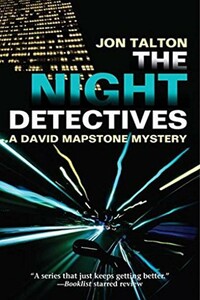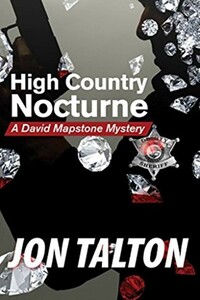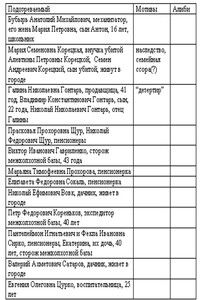The bullshit cop hazing was well under way. The long wait downstairs. Now he would let me stand awkwardly while he balanced his checkbook or wrote to his girlfriend, or whatever. It was like dealing with a tenure committee and I was really bad at it.
I waited at least a minute before speaking. “Look, Hawkins, I don’t want to be here any more than you want me to be. But I’ve got orders, same as you do.”
The dry, dark hair went back and a face rose up. A most ordinary, suburban face with thin, pale lips, and blotchy, pale skin. A face that would always be just a few hours ahead of needing a shave. Below the face was a wrinkled gray dress shirt and a goldish pattern tie with an enormous knot. The face regarded me and nodded grimly.
“Yeah, well, right. Sit.”
I did.
“This is a city case.”
“No!”
“We have a cold-case squad.”
“Seriously?”
“We don’t need your help.”
“I’m crushed.”
“We don’t want your help.”
“So call Chief Wilson and tell him that.”
He sighed heavily from somewhere south of his lungs and went back to staring at his papers. He didn’t like eye contact. “My orders are to cooperate. I follow my orders. This is just a job. Not a crusade.” He signed a document and looked at me again, briefly.
“And this is your lucky day,” he went on, “because I have way more homicides than I have detectives. We have three thousand open-unsolved cases, and they’re from five and ten years ago, with living loved ones who care about what happened. I sure as hell don’t have time for my guys to be mucking around with some bones from sixty years ago. So if you stay out of the way and write your little report, we’ll get along fine.”
“Yessir,” I said. “Out of the way, little report, get along fine.”
He looked up and his eyes narrowed down to slits. A pillbox face ready to resist invaders.
“Look, what do you need to get this over with as fast as possible?”
I told him: access to records, somebody to push through the testing of the crime scene and the skeletons, and time to interview the Yarnell family.
He leaned back and expelled a breath. “You’re talking about one of the most prominent families in the state. What do you need to talk to them about?”
“You know, we talk to family members in murder investigations. At least at the sheriff’s office we do.”
He shook his head and his voice became whiny. “Jesus. It’s virtually a closed case. We just need to tie up loose ends. There’s no mystery here. We don’t need to make waves or piss people off.”
“I can be quite charming,” I said. “Look how I’m winning you over.”
He rubbed his neck. “You will wear your MCSO identification in the building at all times. There’s no smoking in here. No using our office supplies. You will gather evidence and take no action-none-without informing me first.”
He smoothed the papers before him. “No cowboy tactics, no Peralta shoot-em-ups. This is a nine-to-five job, a professional, civil service job. I’m taking my kid to soccer practice tonight, right on time. I expect that from everyone on this floor.” He added: “We’ll get the lab work moving ahead.”
I rose and started to leave.
“You’re an outsider times two, Mapstone,” Hawkins said. “You’re not a Phoenix officer. And you’re not really even a deputy. You’re some kind of professor. Outsiders don’t do well in this department.”
“There goes my self-esteem,” I said, and left him staring at his desktop.
The cases were so old the files were kept in the city records warehouse over on Jefferson Street. At least, that’s what I hoped. I drove over, checked in with another civil servant at another desk, and, after some searching, went to work. I slipped the CD of Ellington’s Carnegie Hall concert in my Walkman and spent the afternoon picking through records.
The physical memory of the case was located in dusty folders inside a single cardboard file box: papers that had once been the center of somebody’s work, but now sat dusty and neglected. Lindsey was a master of search engines, databases, spreadsheets and the Internet. But most records older than ten years were still on paper, microfiche and microfilm, and research was done the way I had learned it in college. Suited me fine. There was something almost mystical about the tactile search through old records for historical truth-the idea of touching the same piece of paper that was touched by the man or woman who lived the event. But, as Peralta said, maybe I was just strange.





